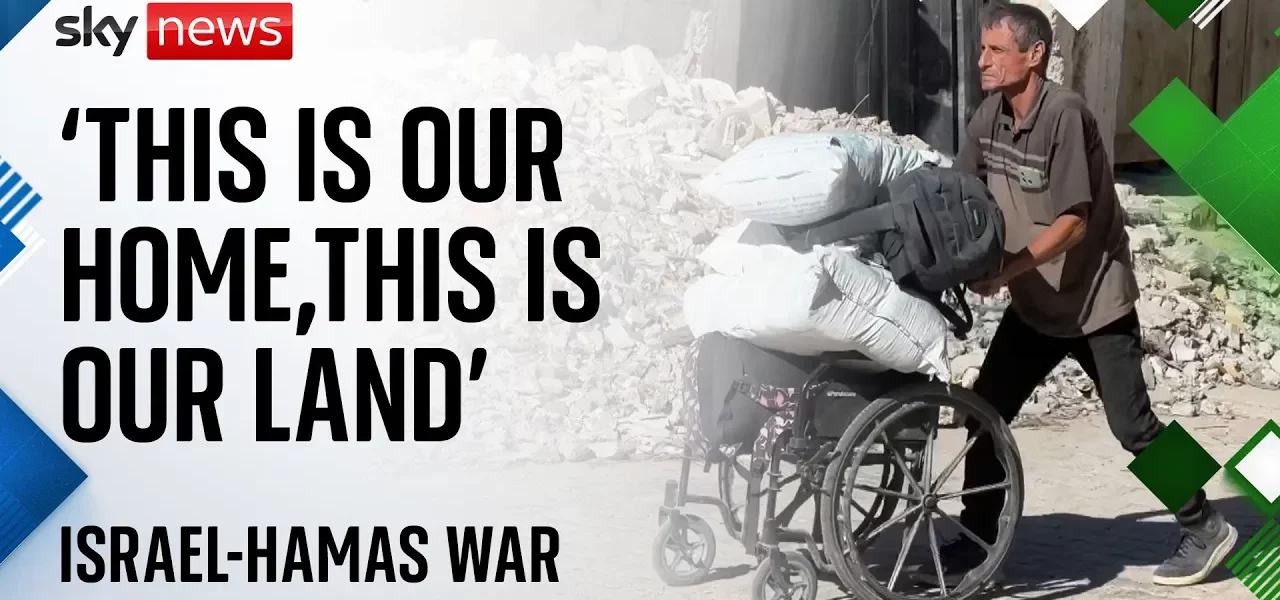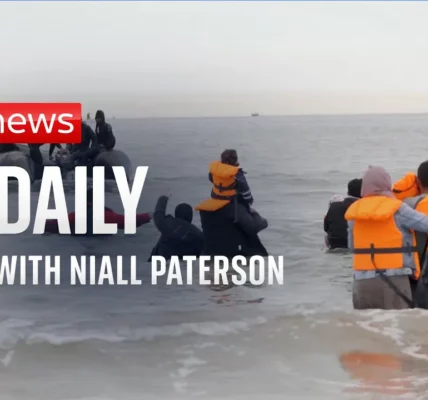Settlers in Waiting: The Controversial Desire to Annex Gaza

This article delves into the contentious issue of settlers looking to annex Gaza, examining their motivations, the stark realities faced by Palestinians, and the broader implications of this movement. The ongoing conflict shapes the landscape, both physically and ideologically, and understanding these perspectives is crucial in navigating the complexities of this situation.
Introduction
The landscape of Gaza, often characterized by its shattered remnants, has become a focal point of tension and aspiration. For many settlers, the idea of moving to Gaza is not just a dream but a perceived right. This article seeks to explore the motivations behind these settlers, the feelings of Palestinians living in Gaza, and the prominent figures supporting this controversial annexation. As the conflict continues, the realities of both communities present a stark contrast that demands attention.
The Settlers’ Perspective
Settlers in Israel have increasingly vocalized their desires to move into Gaza, viewing it as an extension of their homeland. This section explores their motivations and the justifications they offer for such actions.
Desire for a New Life
Many settlers express a keen interest in starting anew in Gaza, often framing their desire as a moral imperative. They perceive themselves as reclaiming land that is rightfully theirs, a sentiment echoed by the national security minister who referred to this movement as both moral and correct.
Political and Ideological Support
The push to settle in Gaza has gained traction within certain political circles, shifting from a fringe idea to a more mainstream agenda. Notable figures have rallied behind this cause, further legitimizing the desire to annex the region:
- National security policies promoting settlement.
- Public speeches encouraging land reclamation.
- Grassroots movements advocating for settlement expansion.
The Palestinian Perspective
While settlers envision a new beginning, Palestinians living in Gaza experience a harsh reality. Their voices often reveal a deep-seated fear and resentment towards the idea of annexation.
Feelings of Expulsion and Violence
Many Palestinians interviewed express a strong desire for self-preservation, with some suggesting extreme measures against settlers. This reflects a broader sentiment of urgency and desperation:
- Fear of displacement from their homeland.
- Concerns over increased violence and military presence.
- Emotional trauma caused by ongoing conflict.
Living Under Siege
The daily lives of Palestinians in Gaza are marked by conflict and instability. The constant threat of airstrikes and military operations creates a pervasive atmosphere of fear:
- Reports of increased military action in Jabalia.
- Separation of families during evacuations.
- Continued mental and physical toll on civilians.
The Tensions Brewing
The juxtaposition of settlers’ ambitions and Palestinians’ realities creates a volatile situation. Protests and counter-protests have emerged, highlighting the deep divisions within society.
Public Opposition to Settlement
Many view the idea of settling in Gaza as not only inflammatory but also illegal under international law. Opposition movements emphasize the following points:
- Potential for escalating violence.
- Violation of Palestinian rights.
- Historical context of land disputes.
Community Responses
Counter-protests demonstrate the passionate resistance to the settlement movement, with individuals arguing that such actions would exacerbate existing tensions and conflict.
Conclusion
The desire of settlers to annex Gaza represents a complex interplay of aspirations, rights, and the harsh realities faced by the Palestinian population. As tensions rise, it is crucial to understand the diverse perspectives involved in this conflict. The situation remains fluid, and continued dialogue is essential. For those seeking to learn more about the implications of such actions, we encourage you to explore related articles on our site about the Israeli-Palestinian conflict, human rights, and community responses to settlement proposals.
“`




